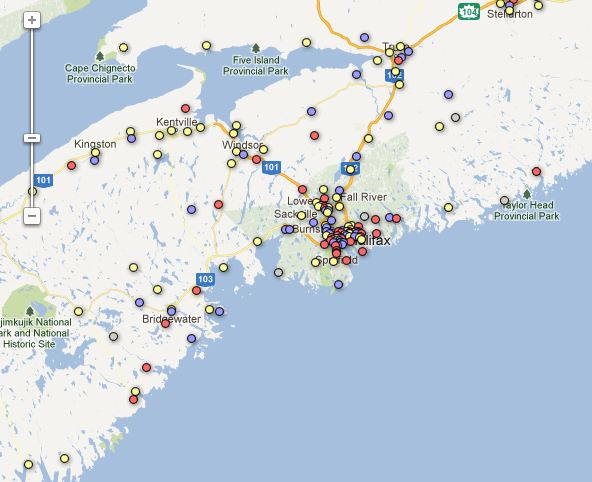HALIFAX – It’s a fundamental part of the school system, but Nova Scotia has been lagging behind lately when it comes to math scores.

Low math scores have been a chronic problem in the province’s elementary and high schools for years, but Education Minister Ramona Jennex said Tuesday her department is taking steps towards changing that.
“Starting next year, students in the Mathematics 10 course will have twice as much time to learn math in the classroom,” Jennex said.
Students will now take math for a full year, something the minister said will be key to boosting Nova Scotia’s math scores.
“By the time they get to Grade 12, we know that only 56 per cent of our students are as successful as we would want them to be,” Jennex said. “That’s just not good enough.”
But, even that may be looking at the bright side.
According to documents released to Global News through an Access to Information request, there are gross discrepancies between individual schools, elementary schools in particular.
About 92 per cent of students at Bel Ayr Elementary school passed last year’s Grade 6 standardized math test. Four kilometres away at South Woodside Elementary, only 21 per cent of kids passed the same test.
In one-fifth of Nova Scotia elementary schools, less than half the students met expectations in math.
“Student performance in Nova Scotia is mediocre at best,” said Paul Bennett, the director of Schoolhouse Consulting. “Some would say miserable.”
Bennett welcomed the changes, saying “It’s taken a long time for the department to come to the realization that the kids were not being taught enough math, at sufficient depth.”
Jennex said the change coincides with an updated curriculum that will be put in place over the next three years.
“It’s just not acceptable that we have children that are not succeeding in math. So, with this new approach to math… our children will have the ability to get strong in that foundational piece that they need.”
The curriculum will be introduced gradually starting in 2013, beginning in primary to Grade 3.
Interactive: The map below displays the percentage of Grade 6 students meeting provincial expectations in 2011 mathematical literacy assessments.
Zoom to your desired area or enter an address in the box at the top to zoom.
Click the drop-down box in the top right corner to look at overall average test scores. Click on a school to view details.




Comments